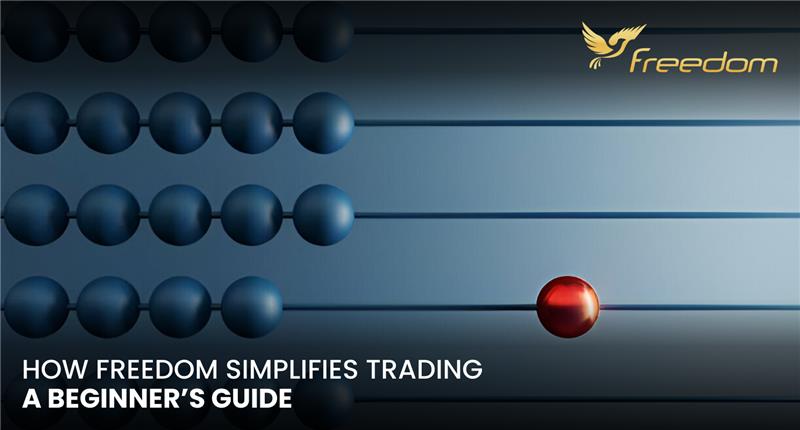A bear market is defined as a 20% or more drop in asset values from recent highs. Clearly, these are not happy times, but fighting back can be harmful. Trading in a down market is difficult, but it is possible. If you know how to trade in a bear market and can keep your emotions in check, this may be an exciting time. In this section, we will look at the many characteristics of trading in a down market.
What defines a Bear Market?
This market condition occurs when stock prices decrease for an extended period of time. It can linger for months or even years and has a terrible economic impact.
This market is distinguished by significant levels of market volatility, as investors become increasingly concerned about prospects, selling off their securities, causing prices to fall even further.
While a bearish market can be caused by a variety of circumstances, the most common cause is economic uncertainty or a predicted downturn in company profitability. When stock prices decrease for an extended period of time, the market is said to be bearish. It can linger for months or even years and has a terrible economic impact.
This market is distinguished by significant levels of market volatility, as investors become increasingly concerned about prospects, selling off their securities, causing prices to fall even further.
While a bearish market can be caused by a variety of circumstances, the most common cause is economic uncertainty or a predicted downturn in company profitability.
Types of Bear Market
There are various forms of bear markets.
Bear markets are classified into three types: cyclical, structural, and event driven.
Structural Bear Market
Long-term economic difficulties, such as diminishing productivity or population changes, produce structural bear markets. They typically last for several years.
Cyclical Bear Market
Economic recessions, which drive corporations to cut back on spending and investment, frequently trigger cyclical bear markets. A bear market of this type often lasts one to two years.
Event Driven Bearish Market
A specific event, such as a natural disaster or a financial crisis, causes event-driven bear markets. They can last several weeks or months.
Taking the effort to determine which type of bear market you are in might considerably increase your bear market’s chances. Event-driven bear markets, for example, can provide some of the best buy-the-dip opportunities in your trading career. This is because the event that created the bear market is often transient, and the market frequently rebounds swiftly. However, keep in mind that all investments involve some level of risk.
Understanding that the bear market is structural, on the other hand, may take a lot more patience before identifying acceptable investing opportunities.
Smart Strategies for Bear Market
Accumulate Using Dollar Cost Averaging
The most important thing to remember during an economic downturn is that negative years in the stock market are normal, it’s part of the business cycle. If you are a long-term investor (meaning you have a time horizon of 10 years or more), one option is to use dollar-cost averaging (DCA). While you buy stock regardless of price, you wind up buying stock at a low price while the market is down. Over time, your costs will “average down,” giving you a lower overall entry price for your shares.
Also Read – Achieve Financial Independence with Freedom – Your Very Own AI Trading Suite
Diversify
The essence of diversification is having a percentage of your portfolio split across equities, bonds, cash, and alternative assets. Your portfolio’s composition is determined by factors such as risk tolerance, time horizon, and goals. Each investor’s scenario is unique. A good asset allocation strategy can help you avoid the potentially harmful consequences of putting all your eggs in one basket.
Look for Good Deals
Investors can benefit greatly from down markets. The key is to know exactly what you’re looking for. Stocks during a bear market are described as beaten up, beaten, and underpriced. Value investors, such as Warren Buffett, frequently see bear markets as purchasing opportunities because the valuations of good companies get pounded down alongside the valuations of bad companies, resulting in very attractive valuations.
Follow Freedom – Facebook | Instagram
Cut it Short
Profiting from declining prices is possible. Borrowing shares in a company or ETF and selling them in the hopes of buying them again at a reduced price is one method. Short trading necessitates margin accounts and can result in significant losses if markets rise and short contracts are called in, pushing prices even higher. Put options are another option that increases in value when prices decrease and guarantees a minimum price at which to sell a security, thereby setting a floor for your losses if used to hedge. To buy puts, you must be able to trade options in your brokerage account.
Investors can profit from a decrease in significant indexes or benchmarks, such as the Nasdaq 100, by investing in inverse exchange-traded funds (ETFs). When the major indexes fall, these funds rise, giving you the opportunity to benefit while the rest of the market suffers. This, unlike short selling or puts, can be simply purchased through your brokerage account.
Play Dead
During a bear market, the bears rule and the bulls are doomed. There is a wise saying that the best thing to do during a bear market is to act dead the same thing you’d do if you encountered a genuine grizzly in the woods. Fighting back would be extremely risky. You can avoid becoming a bear’s lunch by remaining calm and making no unexpected movements. In financial terms, playing dead means putting a higher amount of your portfolio in money market products such as CDs, US Treasury bills, and other assets with high liquidity and short maturities.
Only invest what you can afford to lose!
Investing is vital, but so is eating and having a place to live. Short-term finances (money for the mortgage or groceries) should not be invested in equities. As a general rule, investors should not invest in equities unless they have a five-year investment horizon, ideally longer, and they should never invest money that they cannot afford to lose. Bear markets, and even slight corrections, can be exceedingly damaging.
Avoid Everything & Make Money While Trading
If you want a sustainable trading career without the risks of losing money, join Freedom – the powerful AI Trading Suite!
Freedom allows you to enjoy a risk-free trading journey with guaranteed returns. Choose from one of our packages and set out on a life-changing AI trading experience.




